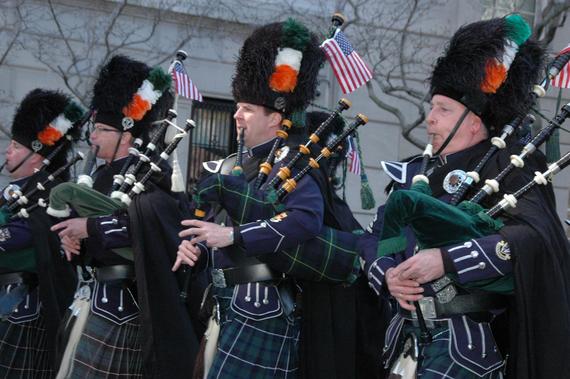An Irish curse that some say has prevented a horse from winning the Triple Crown ever since 1978 has been lifted in time for the upcoming Belmont stakes.
The curse of Mamie O’Rourke will no longer loom over Belmont Park on Saturday June 7th when California Chrome will attempt to win the Triple Crown for the first time in 36 years. He has already won the Kentucky Derby and the Preakness Stakes.
“The Sidewalks of New York,” recalling an Irish American childhood in the city which mentions Mamie O’Rourke, was always the official song of the Belmont Stakes, but no horse has won the Triple Crown since Belmont changed to “New York, New York” and briefly to “Empire State of Mind.”
New York Racing Association officials have decided the song will be played again just before the big race in hopes of ending the jinx.
“Sidewalks of New York” was written by Irish immigrant Charles Lawlor, who was 17 when he arrived in Castle Garden (predecessor of Ellis Island) from Dublin in July 1871, and Irish American James Blake, a haberdasher who composed most of the lyrics.
The song celebrates Blake’s memories of the characters and kids who played in his neighborhood, including Mamie O’Rourke who taught him to dance.
Lawlor said he wrote the song’s lovely two step melody after a night drinking in 1894 in Charlie Murphy’s Pub on Second Avenue, but could not sleep and the song took hold in his head.
The song was adopted by Al Smith as his official song for his 1928 presidential run and went on to sell millions of copies. Lawlor made only $5,000 from it.
The most famous lines are:
“Boys and girls together, me and Mamie O’Rourke
Tripped the light fantastic on the Sidewalks of New York.”
Mamie O’Rourke was the the daughter of Irish bar owner “Diamond" Dan O’Rourke, according to The New York Times. Some say the only reason she was chosen was because her name rhymed closely with “New York.”
Later she played with a women’s baseball team and she has been traced by Tim Wiles, a baseball historian.
Lawlor had no luck with some of his other compositions, including “The Mick Who Threw the Brick” and “Irish Peggy.”




Comments